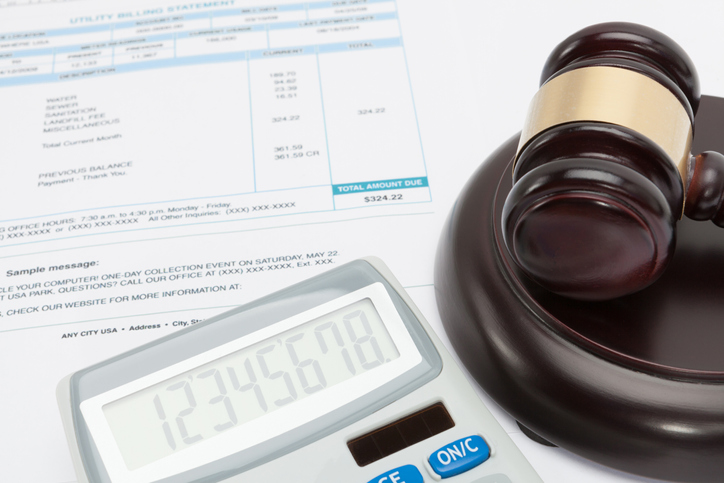
If you’re an accountant or solicitor and one of your clients receives notice of a County Court Judgement or CCJ, what should you be advising them to do?
Well, the first point is that they shouldn’t just ignore it. A CCJ is not simply going to go away.
So it’s no good your client putting their head in the sand, hoping it will. You need to make them realise they must take urgent action. They have just 14 days to respond.
What exactly is it?
Explain to your client that a CCJ is a court order, issued by a county court to enforce the payment of a debt. One can be registered against any company, if the business has failed to pay what it owes to a creditor.
If a creditor has unsuccessfully tried to recover the debt, they may then resort to the County Court. The court will decide whether there is a debt to pay and, if it can be proven, issue a CCJ. This system operates in England, Wales and Northern Ireland but the law is different in Scotland.
What do they need to do?
Impress upon your client that they must respond without delay. A business must respond to the CCJ within the 14 day timeframe and complete the relevant paperwork. Make sure they check the date on the email or letter they receive and note the deadline for paying.
Your client must let the court know whether the company intends to defend itself. If they simply don’t attend, the court will definitely issue the order. This will have a dramatic effect on both their business and position as a company director.
If your client doesn’t agree that there is a debt or has a query over the amount, they still need to reply to that effect. They should ask the court to cancel the judgement or ask if a 14 day delay is possible.
What are the implications?
Many company directors fail to realise the long-term significance of a CCJ. Although receiving one, can’t force someone to repay their creditors, it should be a serious warning flag. The issuing of a CCJ can be used as evidence to start winding up proceedings of a company.
But even before that point, it makes it difficult to trade. It becomes harder to obtain finance from banks and building societies. Trade creditors will be reluctant to offer company credit. And so it becomes a vicious circle.
Your client needs to be aware that records of judgement are kept for six years, unless they pay the full amount within a month, so a CCJ will have a long-term effect on a company’s credit rating. It can also affect a director’s personal credit score, if they gave a personal guarantee to obtain credit in the first place.
Is there anything someone can do to get a CCJ stopped?
If there is clear evidence that a mistake has been made, which your client can demonstrate to the judge, it is possible to get a CCJ stopped. In such instances, they need to ask for the order to be ‘set aside’ and to complete the appropriate forms.
But if the creditor has proof of an unpaid debt and there is no legitimate reason why your client hasn’t settled it, they will simply have to pay up, although it may be possible to pay in instalments.
Can a director be made personally liable?
As explained in our last blog ‘ What are a director’s responsibilities?’, directors must act in the best interests of their creditors when a company enters insolvency. If they don’t, they could be found guilty of wrongful trading under the Insolvency Act 1986 and held personally liable for the company’s debts.
The law¹ clearly states that if:
- a) the company has gone into insolvent liquidation;
- b) and at some time before the commencement of the winding up of the company, that person knew or ought to have concluded that there was no reasonable prospect that the company would avoid going into insolvent liquidation and;
- c) that person was a director of the company at that time,
they could be found liable to make a contribution to the company’s assets as the court thinks proper.”
Sections within the Act also say that directors need to have shown they made every effort to minimise any potential loss to their creditors. They must be able to prove they have acted in the interests of the creditors rather than their own or those of the company.
The importance of seeking advice
Dealing with a CCJ is a complex matter which highlights the importance of getting professional advice.
If you have a client in such a position, encourage them to speak to a specialised insolvency practitioner as early as possible to prevent the situation escalating. There are options available but it’s vital they act swiftly to minimise any long-term consequences.
At DMC Recovery, we have many years’ experience of helping people at risk of losing their business to find a practical solution. If you’d be interested in talking to us on behalf of one of your clients, please do not hesitate to get in touch.





